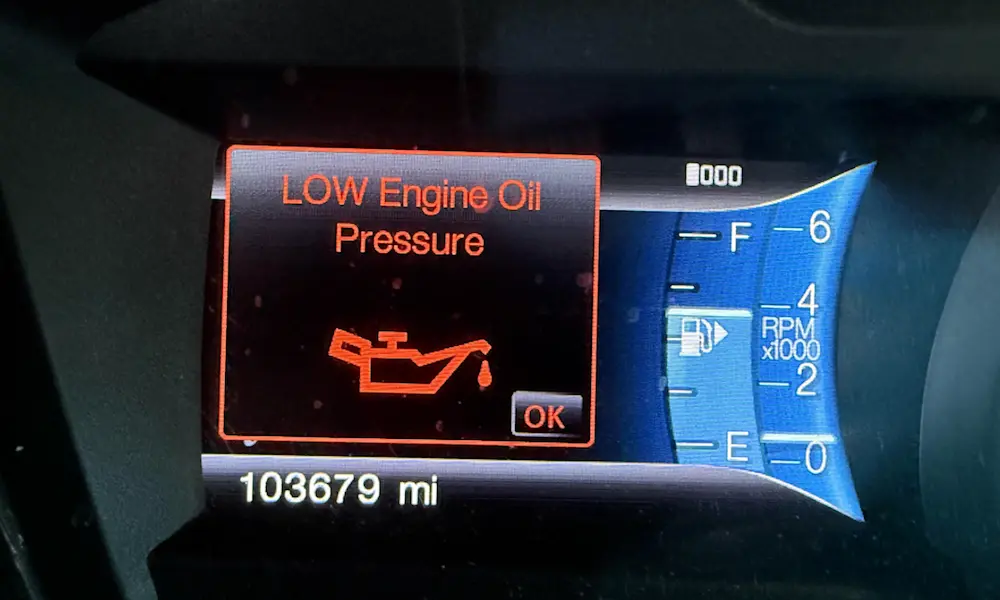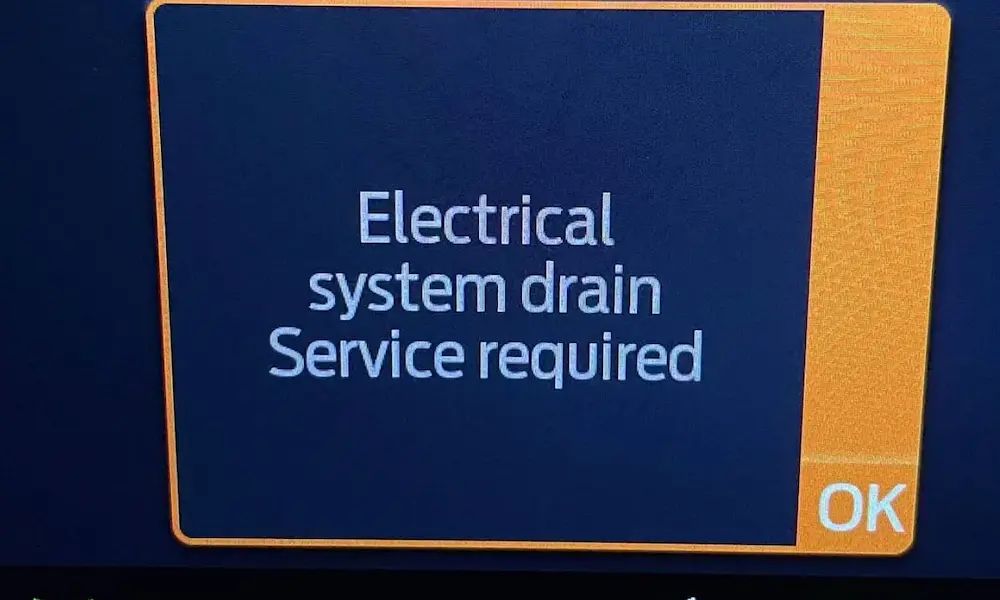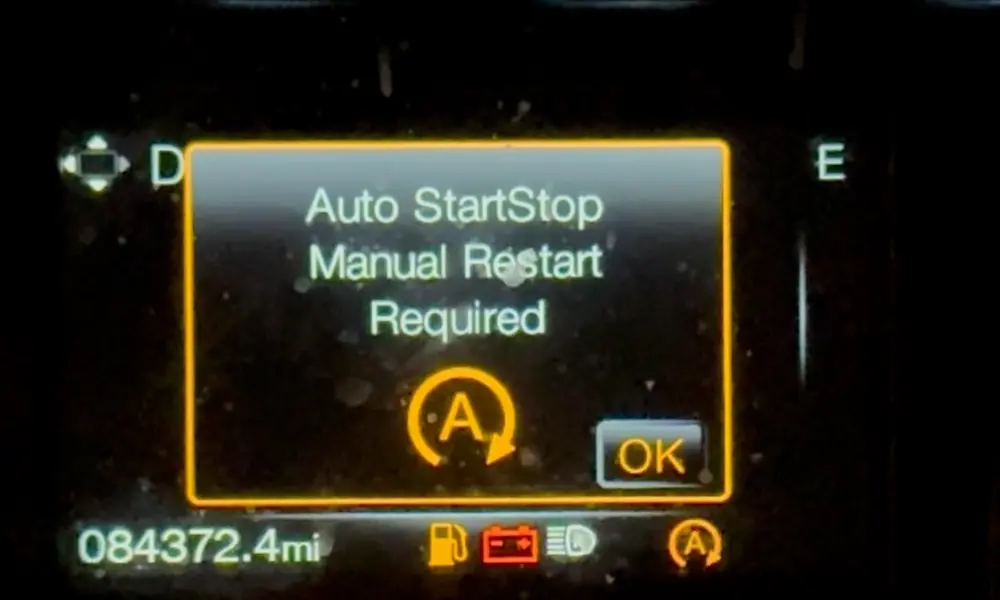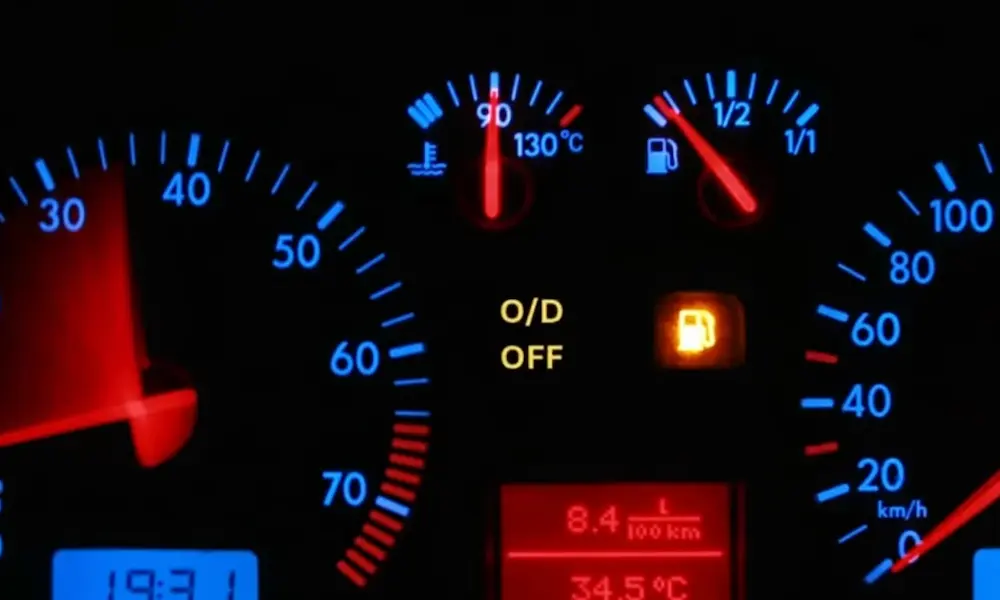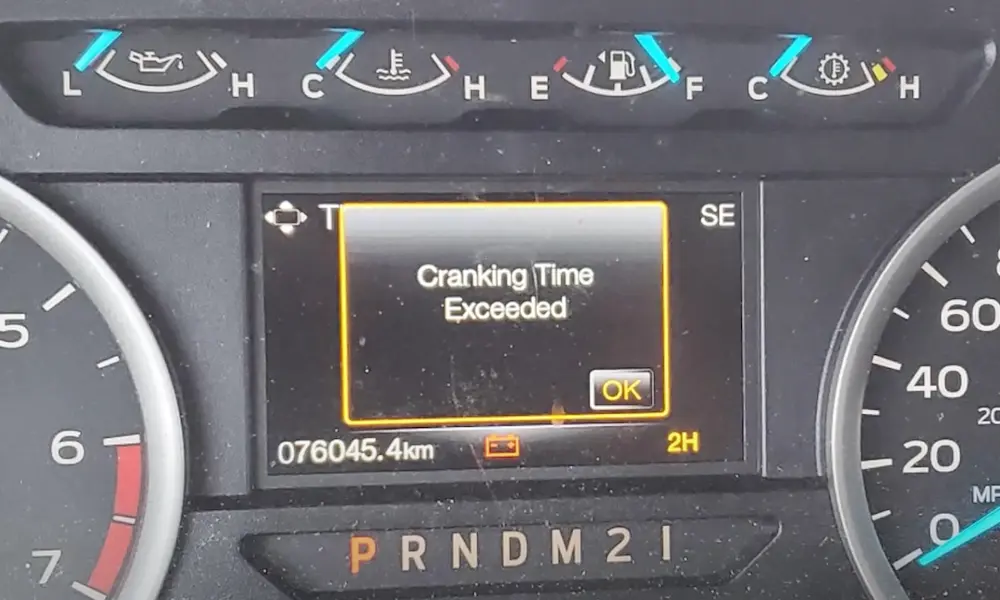Experiencing trouble with your Ford 5.4 engine can be frustrating. Common issues include spark plug blowouts and oil leaks. Understanding which models and years are most affected can save you time and money. This post explores these problems in depth, offering insights and solutions that could help you fix your engine troubles. Stay with us to learn how to get your Ford running smoothly again.
Overview of the Ford 5.4L Engine
The Ford 5.4L engine is part of Ford’s renowned Modular Engine Family. It’s known for its flexibility and power, serving a wide range of vehicles. You’ll discover interesting aspects about its history and specifications that shed light on why it’s both celebrated and critiqued.
History of Ford’s Modular Engine Family
The Modular Engine Family began in the early 1990s. Ford developed this family to create versatile engines. You might find it intriguing that these engines were designed with interchangeable parts to reduce production costs. The 5.4L Triton is a standout, entering the scene in 1997 as a successor to the 4.6L engine.
This engine played a significant role in Ford trucks, such as the F-150, and luxury vehicles like the Lincoln Navigator. It was developed to meet the increasing demands for power and efficiency. You can appreciate that the 5.4L offered a good balance of these two aspects. It wasn’t just about making engines bigger but also making them smarter and more efficient.
Specifications of the 5.4L Triton Engine
The 5.4L Triton engine comes with some impressive specifications. With a horsepower range from 235 to 550 and torque from 330 to 510 lb-ft, it offered substantial power. You might find it interesting that this engine was available in several configurations, like the 2-valve, 3-valve, and supercharged versions.
This flexibility made the 5.4L suitable for various applications, from everyday trucks to high-performance sports cars. Its design includes a cast iron block and aluminum heads, which provided a balance between strength and weight. The 5.4L engine’s wide adoption across different Ford models highlights its adaptability and importance in Ford’s lineup.
Common Issues with the Ford 5.4L Engine
The Ford 5.4L engine, known for its power, often faces several challenges. Owners frequently encounter problems with spark plugs, timing chains, and the fuel system, among others. Knowing these issues can help you maintain your engine better and avoid costly repairs.
Spark Plug Problems and Solutions
The Ford 5.4L engine often has issues with its spark plugs. These can break during removal, leading to frustration. It’s essential to use proper techniques and tools for replacing them.
Broken spark plugs can cause misfires and poor engine performance. Regular checks and using high-quality plugs can reduce these risks. Consider consulting a mechanic if you’re unsure about handling them yourself. A professional can ensure safe removal and replacement, preventing potential damage.
Timing Chain Complications
Timing chain complications frequently occur with the Ford 5.4L engine. You might hear a rattling sound if the chain is loose or worn, indicating an issue.
It’s vital to address this quickly to avoid severe engine damage. Regular maintenance and timely replacement of the timing chain and tensioners can help keep your engine running smoothly. Mechanics often advise replacing these components together to ensure a longer lifespan and reliable engine performance.
Cam Phaser Failures and Repairs
Cam phaser failures in your engine can result in rough idle and performance problems. This occurs when the cam phasers, which adjust the cam timing for better efficiency, fail to do their job.
You may notice your engine is noisier than usual. To fix this, replace the faulty cam phasers. It’s a complex task, typically requiring a skilled technician. Regular oil changes can prevent excess wear and prolong the life of cam phasers, keeping your engine in top shape.
Fuel Delivery System Challenges
Fuel delivery challenges, such as fuel pump driver module failure, can disrupt your engine’s performance. A faulty module prevents proper fuel flow, leading to starting issues or stalling.
Check for diagnostic trouble codes, like DTC P1233, which indicates fuel pump problems. Replacing the affected components often resolves the issue. Ensure fuel system inspections are part of your routine maintenance to spot problems early. Regular checks help maintain efficient fuel delivery and engine performance.
Oil Pan Gasket Leak Diagnostics
Leaks from the oil pan gasket are common in the 5.4L engine. You might see oil spots where you park or notice low oil levels.
Address these immediately to prevent engine damage. Replacing the gasket is the typical fix for these leaks. It’s essential to do so promptly to maintain proper oil levels and engine lubrication. Regularly checking under your vehicle for leaks can save you from more significant issues down the road.
Variable Valve Timing Difficulties
The variable valve timing (VVT) system can experience difficulties in the 5.4L engine. Issues arise when the system doesn’t adjust the valve timing correctly, affecting performance and fuel efficiency.
Signs include decreased power and rough idling. Regular oil changes and using the right oil help keep the VVT system functioning well. If problems persist, it might be necessary to replace VVT solenoids or other related components. Proper maintenance can enhance engine longevity and performance.
Ignition System Failures and Fixes
Ignition system problems are prevalent in this engine. Ignition coils often fail, causing misfires and loss of power. These issues can also lead to engine check lights.
Replace faulty ignition coils promptly to improve performance. Invest in quality spark plugs and coils to extend your engine’s lifespan. Additionally, routine diagnostic checks can help identify these problems early, allowing you to address them before they escalate into more significant issues.
Performance Symptoms Associated with Problems
When driving a vehicle equipped with a Ford 5.4 engine, you might notice several performance symptoms indicating underlying issues. These problems can range from misfires to more complex timing chain issues. Understanding these can help identify and address them promptly.
Recognizing Misfires and Power Loss
Misfires are a common issue. You might experience a sudden loss of power while driving. This is often due to problems with spark plugs or the ignition system. A misfiring engine can feel jerky and might cause your car to hesitate during acceleration.
The Ford 5.4 engine is known for spark plug issues, especially blowouts, which can directly lead to misfires. If you experience consistent power loss, it could be linked to these problematic spark plugs or the timing chain, which can cause a host of problems if it’s not functioning properly.
Stalling and Rough Running Patterns
Stalling is another frustrating problem that can occur with the Ford 5.4 engine. This can happen while idling or during driving, making your driving experience rough and unpredictable. A faulty fuel pump driver module is a known issue in these engines and can directly cause stalling by cutting off the fuel supply.
During stalling episodes, you might notice the engine running rough. The engine might vibrate or sound irregular. It might feel like it’s struggling to stay on, which can be traced back to issues with fuel delivery or cam phasers. These timing chain issues are crucial as they affect engine timing and can lead to other serious problems.
Stuttering and Spark Plug Blowouts
Stuttering and spark plug blowouts are notable symptoms. When experiencing stuttering, the engine may seem to skip during acceleration. It can feel like a hiccup in power flow, often indicating spark plug failure or issues with the ignition coil.
Spark plug blowouts, common in some years of Ford 5.4 engines, result in a sudden and complete loss of spark. This is not just an inconvenience but can lead to more serious damage if not fixed promptly. Keep an eye on these signs to ensure your engine performs smoothly and efficiently.
Specific Model Concerns
When considering the Ford 5.4 engine, it’s important to focus on specific models like the Ford F-150, Ford Expedition, and Lincoln Navigator. Each has its own set of challenges, particularly with certain engine years and configurations.
Ford F-150 and the 5.4L Engine
The Ford F-150, especially the 2004 model, often faces problems with its 5.4L engine. Common issues include trouble with spark plugs, which can be difficult to replace and might break off during removal. Some drivers also report that the engine has a tendency to stall without warning.
Another frequent problem is with the timing chain, which could lead to rattling noises, impacting performance and potentially causing further engine damage if not addressed promptly. It’s useful to keep an eye on these issues and perform regular maintenance checks to avoid costly repairs.
Ford Expedition: User Reports on Engine Health
If you own a Ford Expedition with a 5.4L engine, you’ve likely heard concerns about engine performance affecting reliability. Users report difficulties with the fuel pump driver module, which can cause stalling or failure to start. Another issue is the cam phaser, which can lead to noise during operation and affect overall engine smoothness.
Overheating is another topic of discussion among Expedition owners. Keeping your cooling system in good working order and checking coolant levels regularly can help mitigate these concerns. By staying proactive with maintenance, you can improve the reliability of your Expedition.
Lincoln Navigator: Performance Over Time
Lincoln Navigator drivers have voiced their concerns about the performance of the 5.4L engine as it ages. Common complaints include the ignition coil failure, which can cause misfiring and reduced power. Additionally, oil leaks around the engine block might develop, leading to further complications if not addressed.
Users also mention issues with fuel economy degradation over time. Regular tune-ups, along with keeping track of any unusual engine sounds or behaviors, can help maintain your Navigator’s performance. Investing time in understanding these specific challenges can lead to a smoother driving experience.
Maintaining the 5.4L Triton Engine
Regular maintenance of your Ford 5.4L Triton Engine can help extend its lifespan, improve fuel efficiency, and prevent costly repairs. Focusing on prevention, optimizing efficiency, and timely repairs are key to keeping your engine running smoothly.
Preventative Measures for Longevity
Regular oil changes are crucial for keeping your engine in good shape. Ford recommends changing the oil every 5,000 miles or six months, whichever comes first. This helps reduce wear on engine parts and ensures efficient operation.
Keep an eye on the ignition system, especially in the 3 Valve Engine variant which often experiences coil-on-plug issues. Inspect the spark plugs regularly and replace them as needed to prevent misfires.
Replace the fuel filter every 30,000 miles. This keeps the fuel system clean and can prevent stalling or rough idling. Maintaining clean air filters is also important, as dirty filters can restrict airflow and affect performance.
Optimizing Fuel Efficiency
To improve fuel efficiency, ensure that your tires are properly inflated. Under-inflated tires can decrease fuel economy by up to 3%. Check the pressure monthly and especially before long trips.
Monitor your engine’s oxygen sensors. Faulty sensors can lead to incorrect air-to-fuel ratios, decreasing efficiency. Replacing malfunctioning sensors can improve mileage.
Reducing excess weight in your vehicle can make a significant difference. Removing non-essential items can help improve performance and save on gas. Using cruise control on highways can also enhance fuel efficiency by maintaining a steady speed.
Best Practices for Timely Repairs
Keep an ear out for unusual noises, as knocking or rattling can indicate timing chain issues. Address these promptly to avoid further damage.
Don’t ignore warning lights on the dashboard. Check engine lights or other alerts should be diagnosed with an OBD-II scanner to identify problems early. Regular diagnostic checks help catch minor issues before they escalate.
Regularly check the condition of the belts and hoses. Cracks or wear can lead to leaks or belt failure, causing overheating or loss of power steering. Replacing worn components before they fail ensures your engine runs smoothly.



